![]()
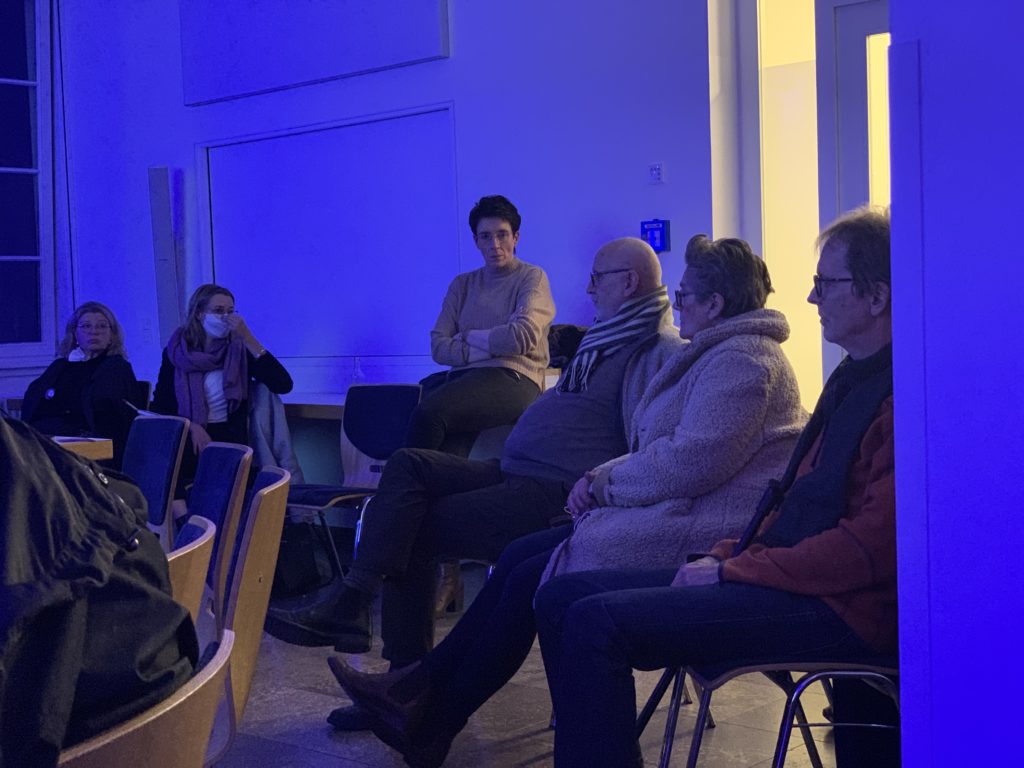
Report on the lecture "Ice with plastic" & avoiding waste in Warburg
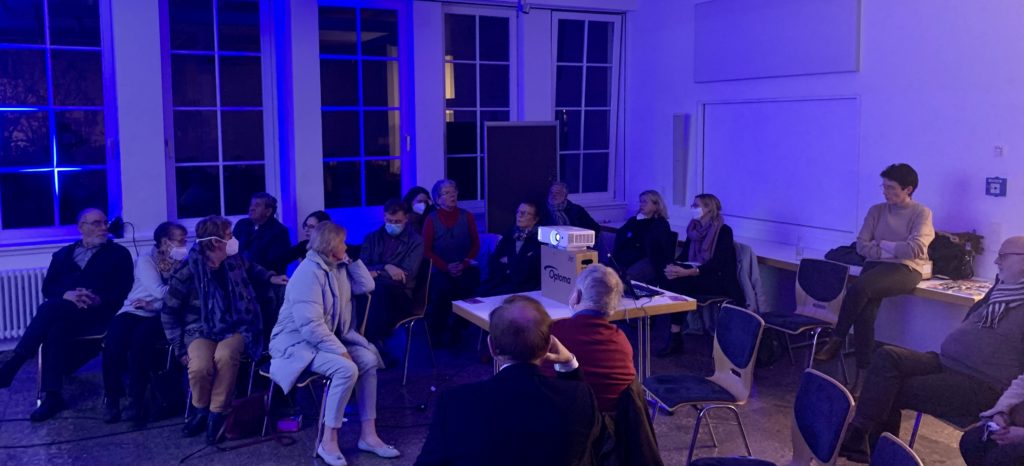
More than 30 listeners came to the lecture "Ice cream with plastic" with speaker Simone Flörke 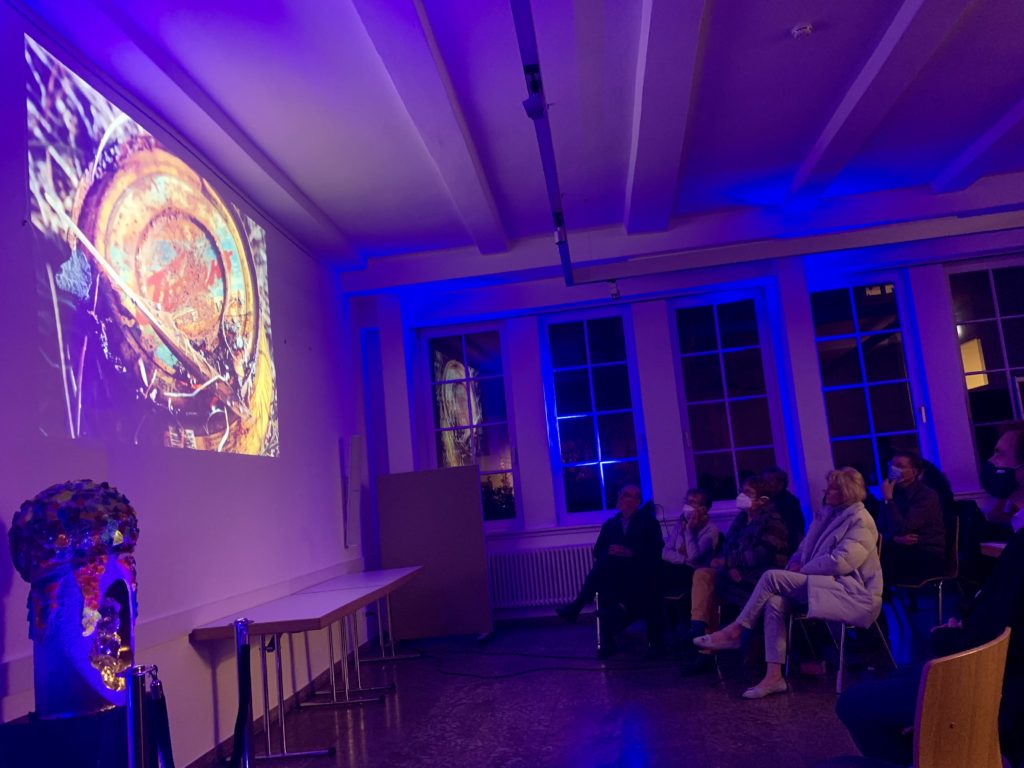
Documentation of caviar cans washed up in Svalbard from Russia 
Lively discussion in the Corvinushaus Warburg 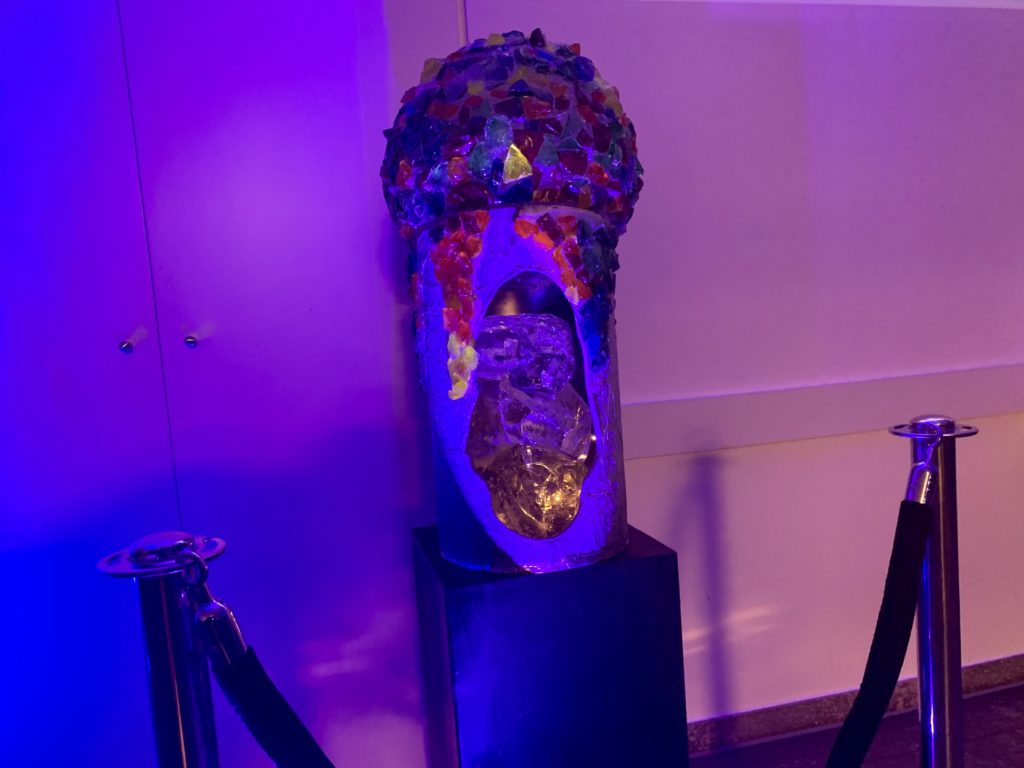
Inspired by the eternal ice, Idie artist ngrid Heuchel from Bellersen created this sculpture. 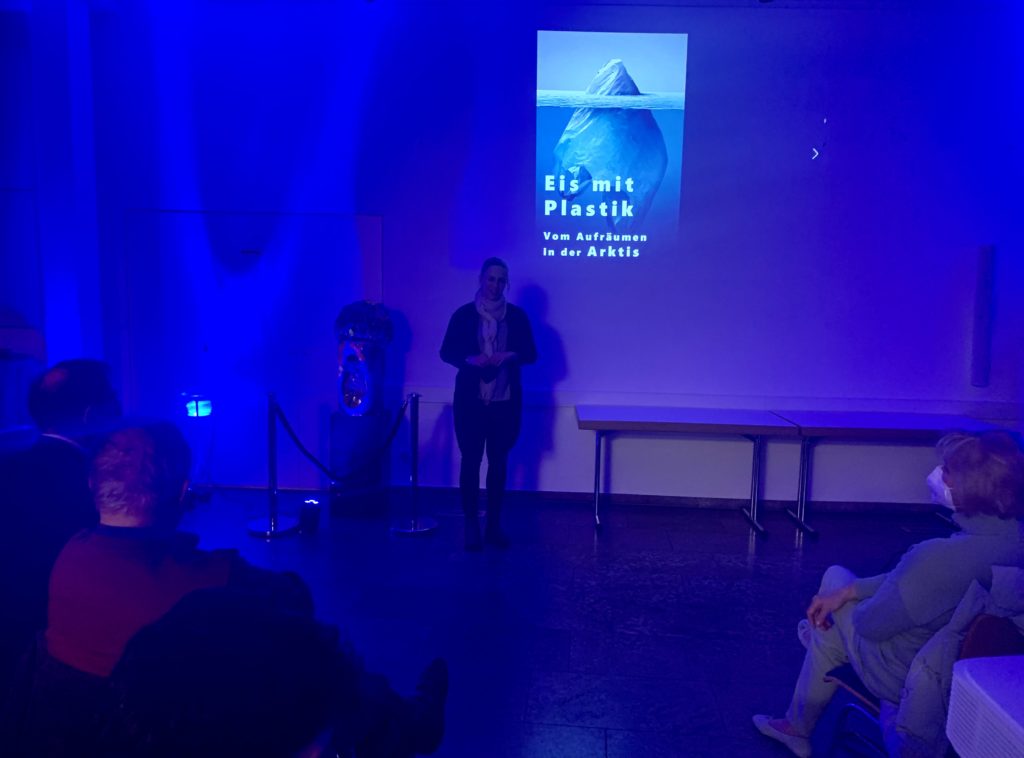
Welcome on behalf of the Earth Charter Idea Workshop as organizer by Valeria Geritzen 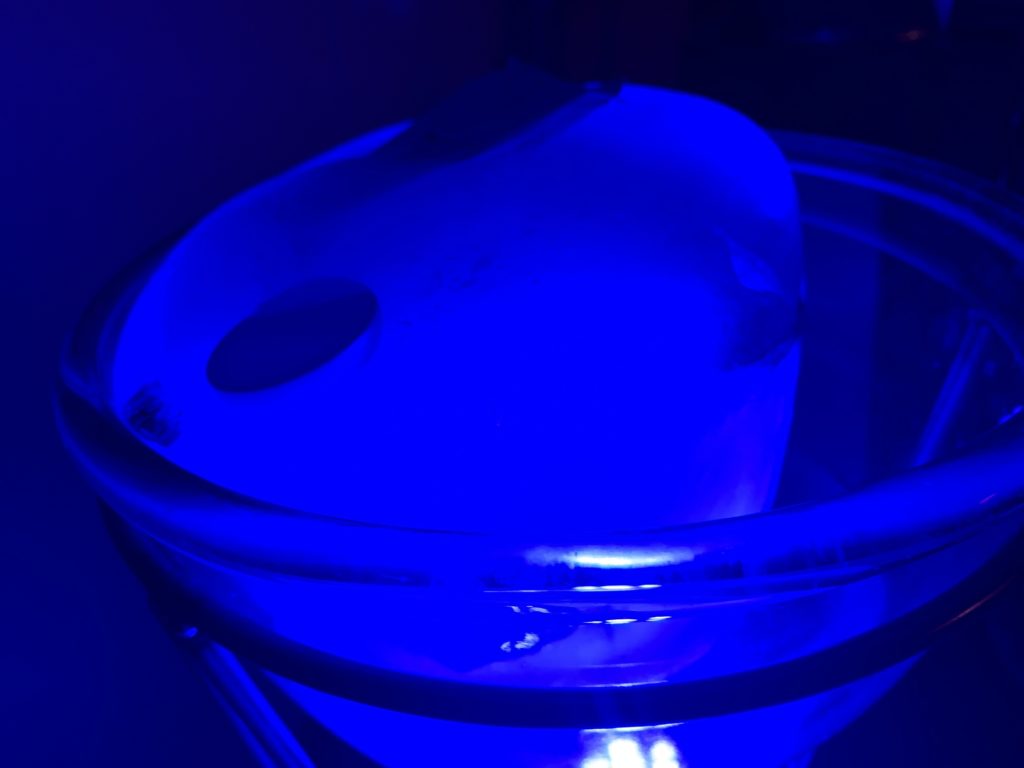
Melting ice block on site in the Corvinushaus
"Use opportunities and opportunities in Warburg"
Report on the picture lecture: Ice cream with plastic, November 15, 2021
At the beginning of this week, the Warburg Earth Charter Ideas Workshop invited to the picture lecture “Ice cream with plastic” with speaker Simone Flörke in the Corvinushaus Warburg. More than 30 guests from Warburg, Beverungen, Bellersen, Dalhausen and Wethen attended the event and were impressed by the visually stunning photos taken by the speaker from her visits to the Arctic.
In the course of the evening, inspiring images of nature and animals collided with terrifying images of plastic garbage collections and wild animals that died in agony as a result. The civilization garbage that washes up on the beach in unbelievable quantities on Svalbard, halfway between the Norwegian mainland and the North Pole and poses a constant threat to the ecosystems, does not come from the few inhabitants of the archipelago, but is released from the ocean currents around the world transported all over the world to the Arctic. The labels on the plastic packaging, which the speaker Simone Flörke collected and photographically documented on site, prove that the plastic waste is not only washed up from Sweden and Russia: civilization waste from Indonesia, Germany, Italy and many other countries also ends up in large quantities Arctic. After all, seven percent of the plastic waste washed up on Svalbard comes from Germany.
Where this waste found its way into the sea, whether in the producing country or through garbage exports in the global south, remains a central question. The fact is that the plastic packaging that somehow got into the sea can literally be found at the other end of the world. It is painful to see that the global ocean currents have to remind us of these global connections between ecosystems. The lecture "Ice with Plastic" shocked and impressed the visitors at the same time.
With the photo books of her travels, Simone Flörke impressed those present as an outstanding photographer with outstanding nature photographs. Supplemented by informative graphics, the global relationships were highlighted and the importance of the topic of packaging waste and avoidance highlighted. Germany as a plastic waste export country, the Federal Republic of Germany exports one million tonnes of plastic waste every year, has to take on a much more active role in avoiding its own exports and actively supporting the global south, building and maintaining innovative recycling and control systems on site.
Lively discussion
In a round of talks that followed the lecture, those present lively discussed important aspects and possibilities of how we as a society can avoid the huge amounts of plastic waste and microplastics in nature in the future. Reinhard Humburg cited a possible speed limit as one thesis that could significantly reduce tire wear, which is responsible for huge amounts of microplastics in the soil and groundwater. The Warburg state parliament candidate Nora Wieners spoke of the possibility of a nationwide plastic tax.
What can I do on site myself? Michael Schwarzwald appealed to those present to spend a holiday similar to that in the Arctic in their own place and collect plastic waste together in Warburg. The Earth Charter Ambassador Dagmar Feldmann from Bonenburg reported on her everyday life and how she gets her purchases without additional packaging. However, the success of packaging-free shopping depends on local conditions. In the local and often small grocery and food trade, it is possible without any problems to receive cheese, sausage, baked goods and vegetables in their own containers and bags. In larger shops, on the other hand, it is often necessary to first convince people at the cheese counter and at the discounter, packaging-free shopping for many products is simply impossible, as the food is always packaged.
“The Hanseatic City of Warburg plastic-free as soon as possible” is one of the future topics that are already being discussed in the Warburg Earth Charter Ideas Workshop at the monthly meetings. 50% less plastic consumption through the individual actions of all actors in the Hanseatic city by 2025 should be feasible. To want to use the opportunities and possibilities in Warburg through innovations and also through concrete action on site - those present on this evening in the Corvinushaus agreed on many points.
Text / photos VG
// artwork
Ingrid Heuchel, ArtD Driburg
